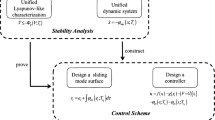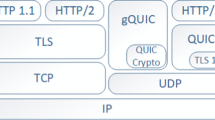Abstract
This paper studies event-triggered output feedback resilient control for networked control systems (NCSs) under stochastic deception attacks following a Bernoulli distribution. Unlike continuous event-triggered mechanism (ETM) requiring dedicated hardware and complex Zeno-avoidance computation, an output-based discrete ETM is firstly introduced, which overcomes limits of continuous ETM and relaxes state-available constraint. Secondly, a novel time-delay system model is established, which makes it possible to study effects of the ETM, stochastic attacks and network-induced delays in a unified framework. Thirdly, less-conservative asymptotic stability criteria with desired H∞ index are obtained, which derive quantitative relationships among the ETM, stochastic attacks, network delays, plant and resilient controller. Further, sufficient conditions to co-deign the ETM and resilient controller are presented. Finally, examples confirm effectiveness of the proposed method.
Similar content being viewed by others
References
J. H. Park, H. Shen, X. H. Chang, and T. H. Lee, Recent Advances in Control and Filtering of Dynamic Systems with Constrained Signals, Springer, Switzerland, 2019.
F. Li, L. Gao, G. Dou, and B. Zheng, “Dual-side event-triggered output feedback H∞ control for NCS with communication delays,” International Journal of Control Automation and Systems, vol. 16, no. 1, pp. 108–119, 2018.
Y. Shen, W. Zhang, H. Ni, D. Zhang, and L. Yu, “Guaranteed cost control of networked control systems with DoS attack and time-varying delay,” International Journal of Control Automation and Systems, vol. 17, no. 4, pp. 811–821, 2019.
J. Liu, L. Wei, X. P. Xie, and D. Yue, “Distributed event-triggered state estimators design for sensor networked systems with deception attacks,” IET Control Theory and Applications, vol. 13, no. 17, pp. 2783–2791, 2019.
D. Ding, Q. L. Han, Y. Xiang, X. Ge, and X. M. Zhang, “A survey on security control and attack detection for industrial cyber-physical systems,” Neurocomputing, vol. 275, pp. 1674–1683, 2018.
G. Liang, S. R. Weiler, J. Zhao, F. Luo, and Z. Y. Dong, “The 2015 Ukraine blackout: implications for false data injection attacks,” IEEE Transactions on Power Systems, vol. 32, no. 4, pp. 3317–3318, 2017.
S. Amin, X. Litrico, S. Sastry, and A. M. Bayen, “Cyber security of water SCADA systems-part I: analysis and experimentation of stealthy deception attacks,” IEEE Transactions on Control Systems Technology, vol. 21, no. 5, pp. 1963–1970, 2013.
J. Wu, C. Peng, J. Zhang, M. Yang, and B. L. Zhang, “Guaranteed cost control of hybrid-triggered networked systems with stochastic cyber-attacks,” ISA Transactions, 2019. DOI: 10.1016/j.isatra.2019.04.017
J. Liu, L. Wei, X. Xie, E. Tian, and S. Fei, “Quantized stabilization for T-S fuzzy systems with hybrid-triggered mechanism and stochastic cyber-attacks,” IEEE Transactions on Fuzzy Systems, vol. 26, no. 6, pp. 3820–3834, 2018.
J. Liu, M. Yang, E. Tian, J. Cao, and S. Fei, “Event-based security control for state-dependent uncertain systems under hybrid-attacks and its application to electronic circuits,” IEEE Transactions on Circuits and Systems I: Regular Papers, vol. 66, no. 12, pp. 4817–4828, 2019.
J. Liu, Y. Gu, L. Zha, Y. Liu, and J. Cao, “Event-triggered H∞ load frequency control for multiarea power systems under hybrid cyber attacks,” IEEE Transactions on Systems, Man, and Cybernetics: Systems, vol. 49, no. 8, pp. 1665–1678, 2019.
W. He, X. Gao, W. Zhong, and F. Qian, “Secure impulsive synchronization control of multi-agent systems under deception attacks,” Information Sciences, vol. 459, pp. 354–368, 2018.
G. Wen, X. Zhai, Z. Peng, and A. Rahmani, “Fault-tolerant secure consensus tracking of delayed nonlinear multi-agent systems with deception attacks and uncertain parameters via impulsive control,” Communications in Nonlinear Science and Numerical Simulation, vol. 82, Atricle 105043, 2020.
L. An and G. H. Yang, “LQ secure control for cyber-physical systems against sparse sensor and actuator attacks,” IEEE Transactions on Control of Network Systems, vol. 6, no. 2, pp. 833–841, 2019.
Y Yuan, P. Zhang, L. Guo, and H. Yang, “Towards quantifying the impact of randomly occurred attacks on a class of networked control systems,” Journal of the Franklin Institute, vol. 354, no. 12, pp. 4966–4988, 2017.
A. Abusorrah, A. Alabdulwahab, Z. Li, and M. Shahideh-pour, “Minimax-regret robust defensive strategy against false data injection attacks,” IEEE Transactions on Smart Grid, vol. 10, no. 2, pp. 2068–2079, 2019.
J. Cheng, J. H. Park, X. Zhao, J. Cao, and W. Qi, “Static output feedback control of switched systems with quantization: a nonhomogeneous sojourn probability approach,” International Journal of Robust and Nonlinear Control, vol. 29, no. 17, pp. 5992–6005, 2019.
X. M. Zhang, Q. L. Han, and B. L. Zhang, “An overview and deep investigation on sampled-data-based event-triggered control and filtering for networked systems,” IEEE Transactions on Industrial Informatics, vol. 13, no. 1, pp. 4–16, 2017.
F. Li, J. Fu, and D. Du, “An improved event-triggered communication mechanism and ℒ∞ control co-design for network control systems,” Information Sciences, vol. 370, pp. 743–762, 2016.
Z. Tang, J. H. Park, and T. H. Lee, “Dynamic output-feedback-based H∞ design for networked control systems with multipath packet dropouts,” Applied Mathematics and Computation, vol. 275, pp. 121–133, 2016.
J. Cheng, J. H. Park, J. Cao, and W. Qi, “Hidden Markov model-based nonfragile state estimation of switched neural network with probabilistic quantized outputs,” IEEE Transactions on Cybernetics, 2019. DOI: 10.1109/TCYB.2019.2909748
C. Peng and T. C. Yang, “Event-triggered communication and H∞ control co-design for networked control systems,” Automatica, vol. 49, no. 5, pp. 1326–1332, 2013.
J. Cheng and Y Zhan, “Nonstationary l2 - l∞ filtering for Markov switching repeated scalar nonlinear systems with randomly occurring nonlinearities,” Applied Mathematics and Computation, vol. 365, Article 124714, 2020.
D. Peng, J. Zhang, C. Hua, and C. Gao, “A delay-partitioning approach to the stability analysis of 2-D linear discrete-time systems with interval time-varying delays,” International Journal of Control Automation and Systems, vol. 16, no. 2, pp. 682–688, 2018.
X. M. Zhang and Q. L. Han, “Event-triggered dynamic output feedback control for networked control systems,” IET Control Theory and Applications, vol. 8, no. 4, pp. 226–234, 2014.
C. Peng and F. Li, “A survey on recent advances in event-triggered communication and control,” Information Sciences, vol. 457–458, pp. 113-125, 2018.
Author information
Authors and Affiliations
Corresponding author
Additional information
Publisher's Note Springer Nature remains neutral with regard to jurisdictional claims in published maps and institutional affiliations.
Recommended by Editor Jessie (Ju H.) Park. This work was supported by National Natural Science Foundation of China under grant 61703146, Scientific and Technological Project of Henan Province under grant 202102110126, 182102210324, and 162102110108, Key Scientific and Research Project of Education Department of Henan Province under grant 19A413009, Scientific and Technological Project of Henan Agricultural University under grants KJCX2016A09, KJCX2015A17 and KJCX2015A19.
Lisai Gao received her M.S. degree in Control Theory and Control Engineering from Zhengzhou University in 2011. She is currently a Ph.D. candidate in Control Science and Engineering at Shanghai University. Her research interests include event-triggered secure control for NCSs under attacks.
Fuqiang Li received his Ph.D. degree in Control Science and Engineering from Shanghai University in 2016. He is now an associate professor in Henan Agricultural University. He is also a postdoctoral researcher in Shanghai University. His research interests include analysis and synthesis of event-triggered control systems.
Jingqi Fu received his Ph.D. degree from Nanjing University of Science and Technology in 1995. He is currently a professor in School of Mechatronics Engineering and Automation, Shanghai University, China. His research interests include wireless sensor and actuator networks and networked control systems.
Rights and permissions
About this article
Cite this article
Gao, L., Li, F. & Fu, J. Event-triggered Output Feedback Resilient Control for NCSs under Deception Attacks. Int. J. Control Autom. Syst. 18, 2220–2228 (2020). https://doi.org/10.1007/s12555-019-0580-9
Received:
Revised:
Accepted:
Published:
Issue Date:
DOI: https://doi.org/10.1007/s12555-019-0580-9




